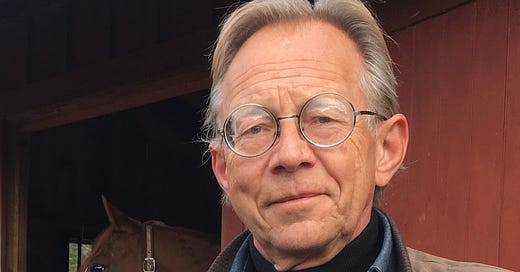The Swedish word for physician is läkare, which literally means healer. That seems a lot more glamorous than the American word physician, which is derived from physic, the old fashioned laxatives that were thought to rid the body of poisons and impurities. But we are actually the healers a lot less often than we think.
The more we learn about how the body works, the more we have to admit that rather than us doctors, it is each patient that heals themself with at most some guidance from us.
We may recommend a change in diet, but we aren’t there to watch what our patients make of the advice we give them. We may prescribe a medication, but we know that many of the standard treatments in our armamentarium are only marginally better than placebo, and we now understand a little bit about psychoneuroimmunology, so we have to admit that patient expectations greatly influence the efficacy of treatments, even surgical procedures. We have learned this from sham knee operations for meniscal problems, for example. Imagine that, placebo surgery, not just pills.
This goes all the way back to the words of Hippocrates: “Let food be thy medicine and medicine be thy food”, “Walking is man’s best medicine” and “The natural healing force within each of us is the greatest force in getting well”. These quotes seem especially relevant in our struggle with the chronic diseases of the times we now live and practice in – heart disease, diabetes, arthritis; all of them at least in part autoimmune in their pathophysiology. If he body can attack and destroy itself, it also has the potential to do the opposite, to heal.
Our job, then, is to provide basic medical care AND to inspire, empower or whatever one calls awakening the self healing potential that a good diet, physical activity, good sleep, healthy relationships, care of one’s emotional needs and a good measure of faith, trust and optimism can ultimately bring about.



